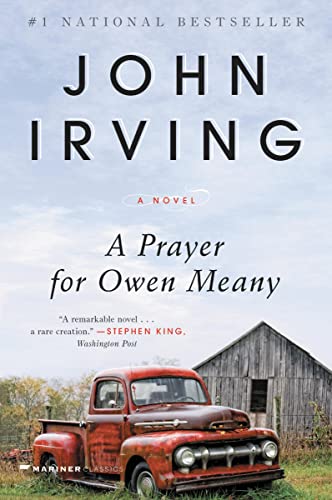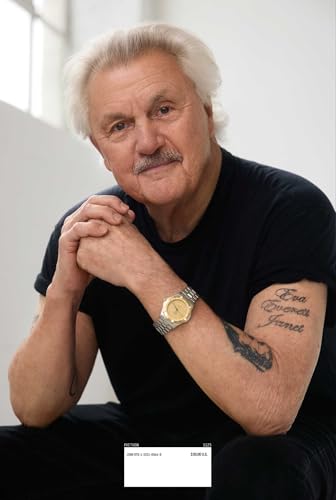If you’ve ever wondered how a writer can pack so much weirdness, heart, and history into one book, you’re in the right place. This is my review of John Irving’s work, where we talk about oddball settings, characters that feel like neighbors (awkward neighbors, sometimes), themes deeper than my sock drawer, and a story pace that can go from snail to cheetah without warning. I promise honesty, a few laughs, and maybe a personal story about me trying and failing to pronounce “Garp” at a party. Let’s get started!
In a nutshell
John Irving’s books are like a mix of drama and comedy, written with a big heart and lots of weird twists. Irving, the man himself, always fills his stories with memorable oddballs, family messes, and a dash of romance. His novels fall under literary fiction, but don’t let that scare you off—these are page-turners, not snore machines!
Themes in Irving’s work include courage, faith, and what it means to belong. He likes to toss characters into tricky situations, then see how they squirm (or shine). You might find a wrestling match, a wild bear, or someone running away from their past, but it all adds up to stories about love, loss, and finding your place in the world.
Historical Accuracy and Setting Details in the Works of John Irving
Let me confess something right up front: I once tried to wear a bowler hat to look fancy while reading a John Irving book, and my cat judged me all afternoon. But when it comes to historical accuracy and setting, that hat felt more at home in an Irving novel than on my head. John Irving might not write strict historical fiction, but man, does he nail the details of the times and places he writes about. Whether it’s Vienna in “The Hotel New Hampshire” or snowy New England in “The Cider House Rules,” you never feel lost. Irving paints the past and present so well that sometimes I wished I could jump into the story, but then I remember how often his characters lose body parts, and I keep my distance.
What really hooked me was Irving’s knack for slipping in small details. He doesn’t stuff his stories with facts just for show—every bit helps build the world. Little things like the clothes people wear, the cars they drive, or even the slang they use made me feel like I was eavesdropping on real folks living their lives. He gets the mix right, so the setting adds flavor without taking over the main meal. Sure, I sometimes paused to check if a detail was spot-on (I’m still not sure about those lobster costumes), but for the most part, Irving keeps his worlds believable and inviting.
If you want books where the world feels so real you can almost smell the musty curtains, John Irving delivers—mostly without too much history homework. But enough about places—let’s peek behind the curtains at Irving’s characters next, because boy, do they steal the show!
Character Development and Relatability in John Irving’s Novels
When it comes to character development, John Irving is not using a screwdriver—he’s building entire homes. The folks in his stories do not just stand around waiting for the plot to happen. They grow, mess up, and sometimes do things so odd, I have to check if my own family is in the book. From Garp worrying about the safety of his kids to Owen Meany driving his friends nuts with his stubbornness, Irving’s characters can feel like your weird cousin or that friend who always turns up with one shoe. They all have their own quirks and flaws, so it’s pretty easy to see a bit of yourself, or maybe a bit you try to hide, in them.
What I like best is that Irving gives his people room to make mistakes. Not every author lets a character flop that hard. Sometimes their choices made me yell at the book (which gets odd looks on the bus). But this honesty adds real depth. Irving also has a knack for making sure no one feels too perfect. Even his heroes aren’t heroes all the time. It’s nice, in a world full of caped crusaders and space knights, to have someone who is as messy and confused as the rest of us.
On the downside, a few characters show up, act odd, and leave without much reason. That can be confusing. But even then, I’d rather too many people than not enough. Next, let’s open the doors to courage and faith—Irving’s books have more guts and hope than a fistful of fortune cookies.
Themes of Courage and Faith in John Irving’s Books
John Irving sure knows how to toss his characters into the deep end. From flying bears to wayward wrestlers, his stories often test what it means to be brave. I remember reading The Cider House Rules and thinking, ‘This is not a book for someone who never broke a sweat.’ Irving’s characters almost always have to show courage, even if they’re just standing up to their own families or wrestling with bad luck. These moments make you cheer for them, or at least feel like calling your own mom to say ‘thanks.’
Faith, in Irving’s world, is a real tricky beast. It’s not just about religion, though that’s there too. Faith in his books means trusting the people you love, or even just believing you can get through the next weird day. Take A Prayer for Owen Meany — faith has so many meanings, you might get dizzy. Irving’s writing made me think about the things I trust in my own life (like the pizza guy, or that my dog won’t eat the mail again). Sometimes, though, he gets a little heavy-handed. Some stories beat you over the head with their big messages, instead of letting you figure them out for yourself. But hey, at least you’ll never be bored!
If you’re after a book that makes you question what you’re made of, Irving’s got you covered. Up next, let’s see if his stories move at a tortoise’s pace or if they’re more like chasing a squirrel on rollerblades—yup, we’re talking about pacing and narrative style!
Pacing and Narrative Style in John Irving’s Novels
If you’re looking for a book that sprints to the finish line, John Irving might not be your best bet. Irving’s pacing is a slow dance rather than a quick jog. He takes his sweet time, like that friend who tells a story and remembers every single detail, including what socks someone wore at a party in 1972. Sometimes, the plot meanders, but that’s part of his charm. You get the feeling you’re living inside the book, not racing through it.
Now, let’s talk about Irving’s narrative style. It’s unique, a bit quirky, and always wordy. He loves a good tangent. You might wonder, “Wait, why are we talking about tattoed wrestlers now?” But somehow, he always brings it back around. He uses humor, even in sad moments, which I appreciate. But I’d be lying if I said I never skimmed a few pages waiting for something big to happen. The guy never met a sentence he wanted to end early.
For me and my reading group, these long, winding roads in his books were sometimes a treat and sometimes a test of patience. If you enjoy taking your time and letting a story unfold like a seven-layer cake, you’ll be in heaven. If you like your fiction fast and snappy, Irving may test your commitment.
Would I recommend picking up a John Irving novel? Yes, but only if you’re ready to soak up every detail and don’t mind taking the scenic route.
Conclusion
So, that’s the end of my wild ride with John Irving’s books! If you want rich settings, oddball but loveable characters, and stories that tackle courage, faith, and family, Irving delivers the goods. Sure, sometimes his pacing is slower than my grandma at a garage sale, but stick with it and you get a story that sticks to your ribs. He’s not for everyone, and if you like your books fast and simple, you might want to look elsewhere. But if you want stories that feel real and weird (sometimes both at once), give him a shot. That’s my review—thanks for coming along, and may your next read be a good one!



